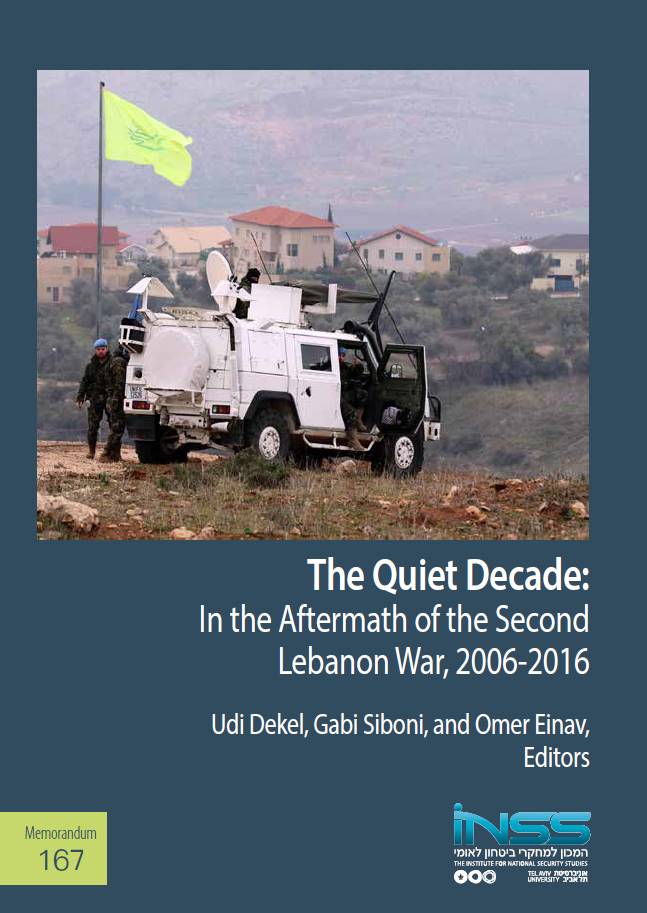Publications
Memorandum No. 167, Tel Aviv: Institute for National Security Studies, July 2017

The Second Lebanon War broke out on July 12, 2006, without either Israel or Hezbollah intending this escalation. However, the abduction of IDF soldiers that day by a Hezbollah cell created a new reality in the north that prompted Israel to embark on a military operation, which ultimately became a war. The course of the war and its outcomes strongly affected subsequent internal and external Israeli, Lebanese, and regional processes. Hindsight provides an opportunity to examine the war and its ramifications from a broader and more balanced perspective than is possible in the heat of the moment. Studying the past and learning its lessons allow a better understanding of the subsequent decade, shed light on the current state of Israel’s northern sector, and contribute to an assessment of possible future scenarios
Contents
Preface
Prelude
The Road to the Second Lebanon War, 2000-2006: Strategic Changes in Lebanon, the Middle East, and the International Theater / Reuven Erlich
The Second Lebanon War
The Second Lebanon War: The Limits of Strategic Thinking / Udi Dekel
The Second Lebanon War: A White House Perspective / Elliott Abrams
Implications of the War for Israel
The IDF: Implementing Lessons Learned from the Second Lebanon War / Gabi Siboni
Israel’s Emergency Preparedness a Decade after the Second Lebanon War / Alex Altshuler, Shmuel Even, Meir Elran, and Yonatan Shaham
“Did We Win or Lose?”: Media Discourse in Israel about the Second Lebanon War, 2006-2016 / Zipi Israeli
Unmanned Aerial Vehicles in Asymmetric Warfare: Maintaining the Advantage of the State Actor / Liran Antebi
Implications of the War for Lebanon
A Decade of Decisions: Lebanon and Syria, from the Second Lebanon War to the Syrian Civil War / Eyal Zisser
The Lebanese Political Arena, 2006-2016: A Turbulent Decade / Benedetta Berti
Hezbollah’s Concept of Deterrence vis-à-vis Israel according to Nasrallah: From the Second Lebanon War to the Present / Carmit Valensi and Yoram Schweitzer
What Will the Next War Look Like?
The Next War against Hezbollah: Strategic and Operational Considerations / Udi Dekel and Assaf Orion


